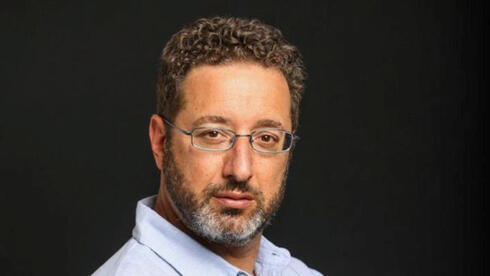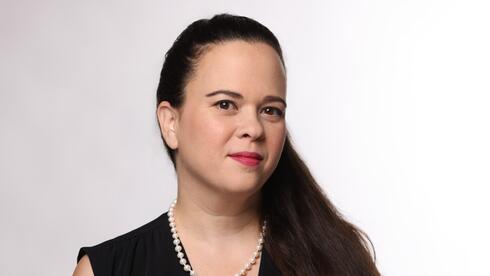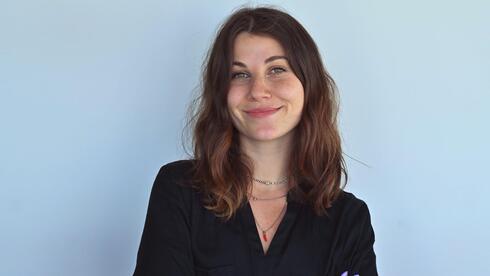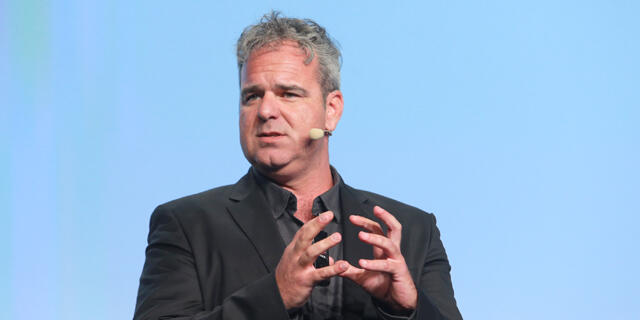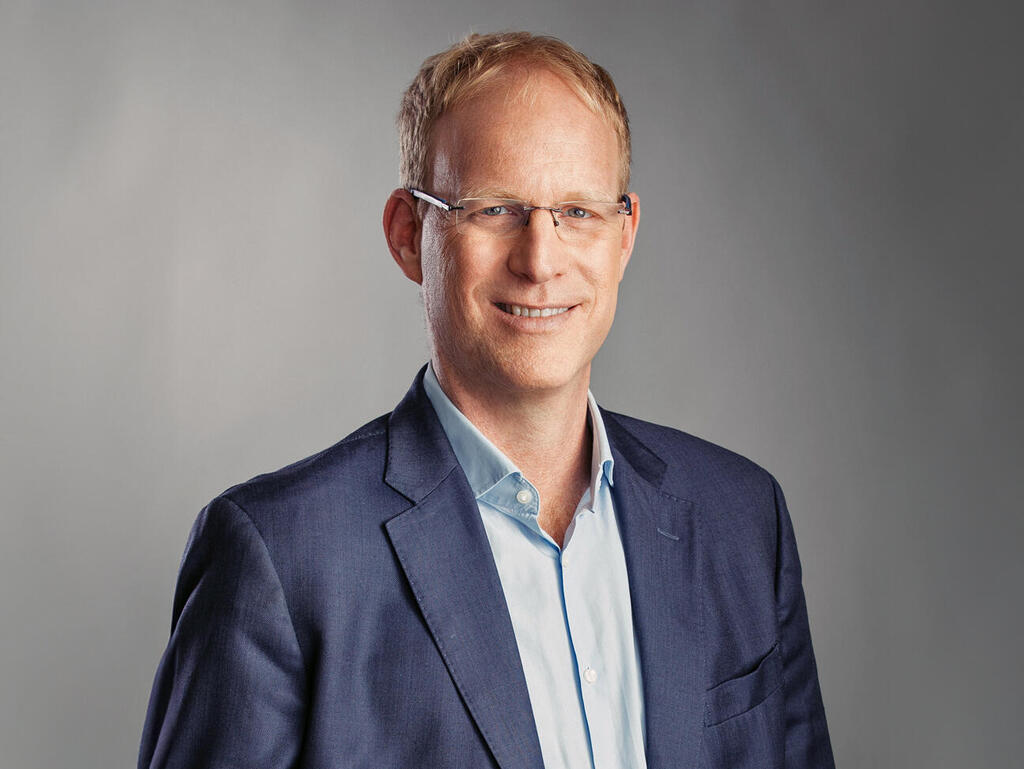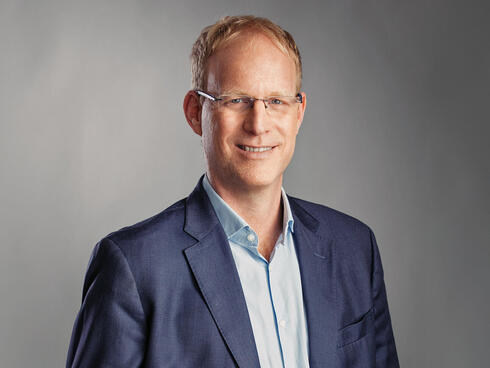
Kaltura CEO: "Just like a missile hit our office, a missile hit us with the IPO"
Kaltura CEO: "Just like a missile hit our office, a missile hit us with the IPO"
Despite devastating events and financial struggles, CEO Ron Yekutiel remains focused on the company's future.
If Kaltura didn’t already have enough challenges, a month ago it faced a very literal one: a three-and-a-half-ton missile. This was not a metaphorical crisis but a real event. In November, an interceptor hit a missile launched from Lebanon, breaking it into several pieces. One of the largest fragments penetrated directly into Kaltura's new offices in the Max Tower in Ramat Gan. The company is still operating, though one-half of one of the three floors it occupies remains closed and fenced off. For the managers and employees of Kaltura, however, this is just another in a series of disasters and challenges that have plagued the company in the three years since its IPO on Wall Street in 2021.
The most devastating blow, far outweighing all others, is the tragic murder of Einav Elkayam, head of a product design team at Kaltura, at the Nova party on October 7. Elkayam's husband, Or Levy, was kidnapped, and their 3-year-old son, Almog, has been growing up without both parents for over a year. At the entrance to Kaltura's office, a commemorative corner honors Elkayam. Combined with the fenced-off area where the missile fragment landed, the atmosphere is one of a battleground—both figuratively and literally.
The business side hasn’t been much easier for Kaltura. Over the past two years, its stock has collapsed by 80%. The company narrowly survived a takeover attempt by a much smaller start-up, went through two rounds of layoffs that resulted in more than 200 employees losing their jobs, and transitioned from high double-digit growth rates during the COVID-19 period to stagnation.
As reported on Monday in Calcalist, Kaltura has now hired the investment bank Jefferies to explore its options—primarily selling to another company, merging, or making a significant acquisition. The company currently trades at a valuation of $350 million, with the aim of striking a deal at $400–500 million. This move comes against the backdrop of a recovery in Kaltura’s stock and an improving period for the industry in which it operates. Since the end of October, Kaltura’s stock has jumped 84%, with an additional 11% surge last Friday.
Almost every high-tech company dreams of going public in New York, and Kaltura exemplifies how such dreams, while achievable, can sometimes do more harm than good. Once a unicorn and one of the first in Israel, Kaltura stood among the early private technology companies to surpass $100 million in annual revenue—and was even profitable. Founded in 2006, it was a rarity. The company’s founding team had impeccable credentials: Ron Yekutiel, a former pilot, led as CEO, while Dr. Michal Tzur and Dr. Shay David had exited from Cayota, and Eran Etam came from the ICQ team that orchestrated the first Israeli tech exit. Over the years, Kaltura raised funds from top-tier U.S. investors while avoiding Israeli funds. The company’s name, a playful twist on "culture," was chosen alongside its logo at a time when the founders hadn’t even finalized their business plan. It quickly became one of the most promising names in the industry.
The team decided to focus on the video market, which grew alongside the rise of internet browsing and the advent of smartphones. Kaltura went public in 2021 at a $1.2 billion valuation—not through a SPAC, but via a traditional IPO. Yet even then, challenges loomed. An earlier attempt to IPO at a $2 billion valuation and raise $300 million had failed. While the successful IPO placed Kaltura in the "tech company hall of fame," its stock quickly tumbled and has struggled to recover. Today, it trades at a market value of $350 million, which reflects a 20% increase since the start of the year—far below the Nasdaq’s growth during the same period. The video market, which boomed during the pandemic, has since contracted, and all of Kaltura's founders, except Yekutiel, have departed.
Despite these setbacks, Yekutiel remains steadfast, continuing to lead Kaltura and holding out hope that the past three years are not indicative of its future. He aims to prove that the enterprise video market can grow again. The capital market, however, remains skeptical. Kaltura trades at a revenue multiple of about 1.7, significantly lower than competitors like Vimeo, which trades at 3.7. Zoom, still the largest player in corporate video with a $24 billion valuation, is down 85% from its pandemic peak. Similarly, Vimeo has lost about 90% of its value since then and now trades at $1.1 billion.
In retrospect, do you regret the IPO? Many of the things that happened might have been avoided if you had remained private.
“There are things you can’t predict. Just like a missile hit us here in the office, a missile hit us with the IPO. In the first attempt, there was no shortage of demand, but that same week, the Archegos hedge fund, with $30 billion in assets under management, collapsed. After 14 months of green on Wall Street, the screens suddenly turned red. Everyone was shocked and lowered their risk. Goldman Sachs, who led the IPO, came to me after the fall and suggested we wait until after Passover. Three months later, we brought in Oracle as a strategic partner. Obviously, if we had stayed private, we would have had more cash, but shortly after going public, we faced a hostile takeover attempt, and almost simultaneously, an old, very central board member passed away from a heart attack. There was also a very important client who was offended politically that we worked with their competitor and cut us off. And that was one of the biggest companies in the world. In short, like all companies, the path is lined with missiles you can’t predict, but you have to handle them when they come,” Yekutiel responds with his characteristic openness and colorfulness.
Are there any other advantages to being public?
"In an ideal world, if I knew everything I know today, I wouldn’t have done many things. But the value of being a private company is also somewhat unreal, as is our current value."
For the most part, the value determined by the wisdom of the masses in the public market is considered to reflect reality.
"Right now, it’s a reasonable and legitimate anchor point, and I don’t challenge that. On the other hand, if your shareholders don’t want to sell at that price, it’s probably not the real price. If it were the real value, they’d all sell, but our shareholders haven’t sold. Although some of them wanted the IPO to realize their holdings, at least some of our big investors haven’t sold a single share since the IPO, and they tell us, ‘You’re worth much more.’ The ones who sold are Intel Capital and Nokia, who were obligated to sell once the company went public. So at the moment, Kaltura’s pricing is like someone coming to your house and giving you a ridiculous offer for the property—you wouldn’t sell because it’s not the real price."
And for business conduct, is it better to approach a potential client or employee as a unicorn or a public company worth $300 million?
"It’s nice to show off and flaunt your feathers, but most private high-tech companies don’t have feathers. And the boasting isn’t real. There’s the value, and there’s the performance under the hood. The interest of all shareholders in private companies is to preserve this high value, even if the world has already changed 500 times. I prefer to live an authentic life, not a fake one. Of course, it’s not pleasant to have low value, but this is something that clears the ego."
Have you considered registering on the Tel Aviv Stock Exchange as part of a dual listing? This could bring more attention to a company worth about a billion shekels.
"It’s not on the agenda right now."
Kaltura seems like the perfect candidate for dual registration, but the company appears to be distancing itself from Israeli identification. It is registered as an American company, with only half of its 700 employees based in Israel. According to Yekutiel, the company has been harmed by its association with Israel since the outbreak of the war. For this reason, Yekutiel asks not to elaborate on his own reserve service following October 7 or the reserve service of other company executives.
"For 21 years, I didn’t do reserve duty, but after October 7, when I was already well over 50 years old, I volunteered. I didn’t fly, of course, but we won’t talk about it—we’ve suffered damages because of our Israeli identity. We’ve lost business because of it, so we prefer not to elaborate on what everyone is doing in the military framework."
Where have you been harmed for being Israeli?
"There was a large tender in East Asia, and all Israeli companies were removed from it, including us. Two Israeli suppliers who were previously involved in the project are no longer there. Muslim countries in the region where we had worked removed us from an existing contract, and we didn’t win any new contracts either."
Despite this, Yekutiel emphasizes that Kaltura, which specializes in managing large video arrays, has since the war taken responsibility for the entire national video database. This database preserves all video clips collected from various sources since October 7, including storing and managing access to the 47-minute horror film. This work began following a request from government officials. At the same time, Kaltura also launched the Stand4Israel website, providing content for advocacy efforts.
Let’s talk about the business—what does a journey from a value of over $1 billion to just under a billion shekels do for a company in terms of business and operational conduct?
"I never let it get to my head, even when we were a unicorn. What was important to me, even in the last few years, is that we never decreased in revenue. We didn’t grow, but we acquired huge customers like Amazon and Salesforce."
Still, you’re almost 20 years old, and your annual revenue rate is $200 million. Even companies from the 2021 IPO batch have overtaken you by now.
"We’re accelerating growth now, and unlike most other companies, we’ve returned to profitability—just like in the past. We went from a negative cash flow of $65 million to a positive cash flow in two years. In 2021, when we went public, we were criticized for being profitable, so we took the profits and reinvested them into new product development. After that, we were criticized again because we couldn’t reinvest in new technology due to entering a significant transition in the video tech industry. This transition was hit hard by the post-COVID effect when everyone overspent, followed by the war here. But everything will come back. We’re bringing in new customers and entering new markets, and we have $80 million in the bank."
Kaltura has three main areas of focus. The reason the company is expanding in multiple directions is both historical and strategic, as it’s unclear whether the corporate video market will return to its pre-COVID growth rates.
"The growth rates of the industry are mostly negative, and it’s becoming an unattractive neighborhood, but I believe the era of video isn’t over. The COVID period was a madness of demand, and after that, customers came to us asking for a break to reassess what they bought. Then came the market crash, but now we’re starting to see growth again, and it’s reflected in our stock. People are starting to recognize the improvement in the industry."
The oldest business unit, which generates about a quarter of Kaltura’s revenue, is profitable but not growing: access management solutions for communication operators like Cellcom. Kaltura manages content access and sometimes user interfaces for telecom companies, with a business model based on subscription fees paid by the operator. Kaltura holds a significant market share, but this is declining as most of the business is moving to streaming companies that have developed their own internal solutions. The second unit, focused on education and teaching, flourished during COVID and helped Kaltura establish a foothold in many academic institutions. The system is used as a portal for managing recorded or live lectures and is connected to grading systems. This market is recovering slightly after becoming saturated during COVID, as is the corporate market—the third, and most promising, area for Kaltura. Here, the company manages video portals for major banks like JP Morgan, HSBC, and Wells Fargo, consulting firms like PwC and EY, and tech giants like Oracle, Adobe, and Amazon. Yekutiel believes there’s strong synergy between these areas, as learning in universities is similar to learning in large organizations, especially as employees are now frequently required to acquire new skills. The introduction of AI, which makes creating content and video much easier, is also changing the landscape.
Although Yekutiel, by virtue of his position, is expected to convey optimism, it seems he has realized that if Kaltura has a future, it likely lies in mergers and acquisitions. Not in the hostile takeover attempt of 2022, but through a controlled move—either selling the company to another player at a low price or using the cash to acquire a company that can elevate Kaltura in the market, possibly toward content creation.
“It’s no secret that there are too many players in our market chasing too little revenue, so consolidation is inevitable. We’re not sitting still. We want to make a strategic move, and for that, I brought in John Doherty, a former senior executive at Verizon, to be our CFO. We can return to double-digit growth, not at a high rate, but there’s no reason it won’t happen. We’re evolving, not revolutionizing,” Yekutiel cautions. In addition to hiring the CFO, Kaltura is also working with Jefferies and is open to following the script of Innovid—another Israeli company in the digital campaign management space. Innovid was also IPO-ed in 2021 at a value of $1.3 billion, wrote off 90% of its value, and was recently sold for $500 million.




